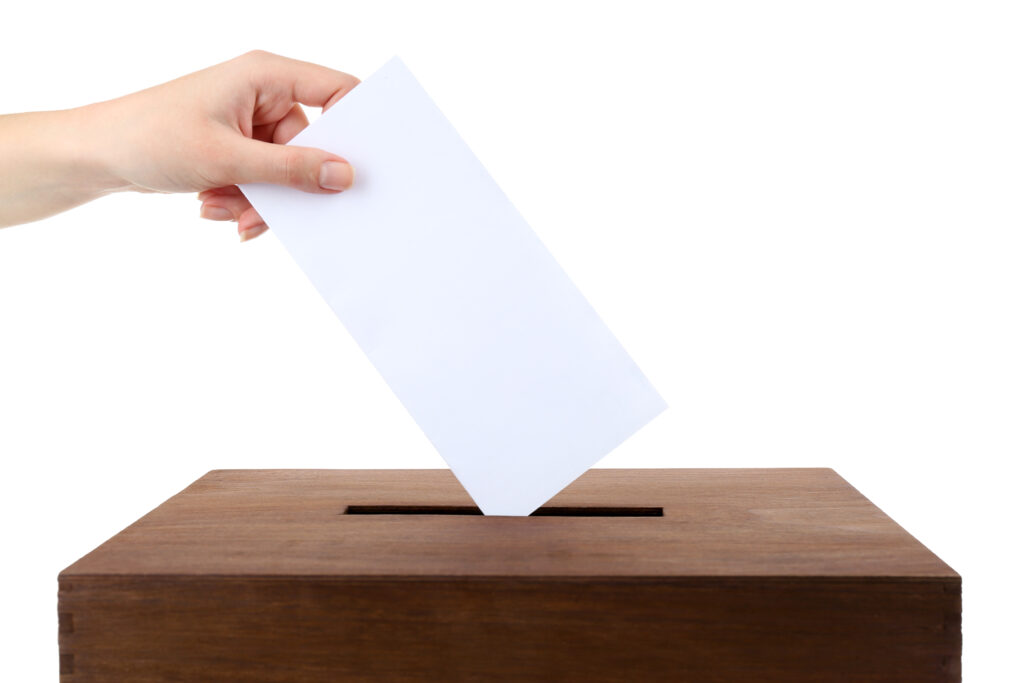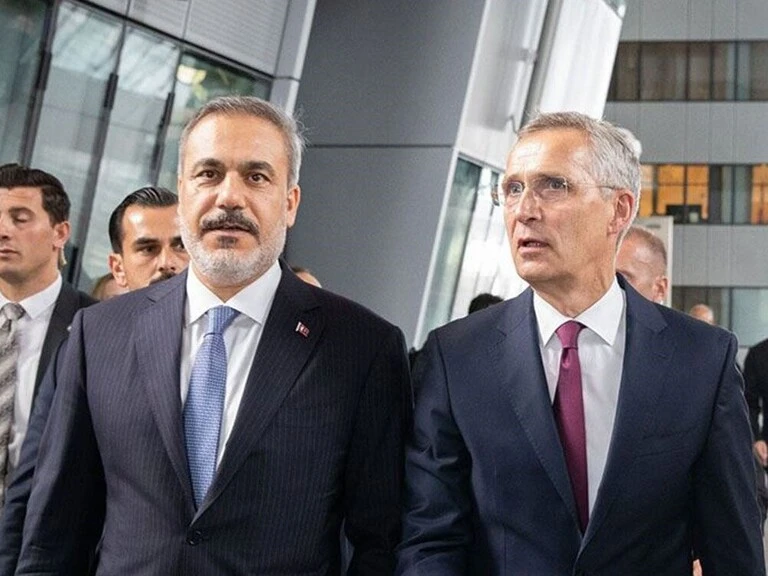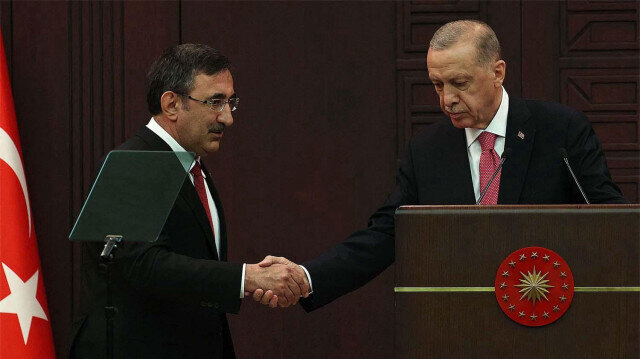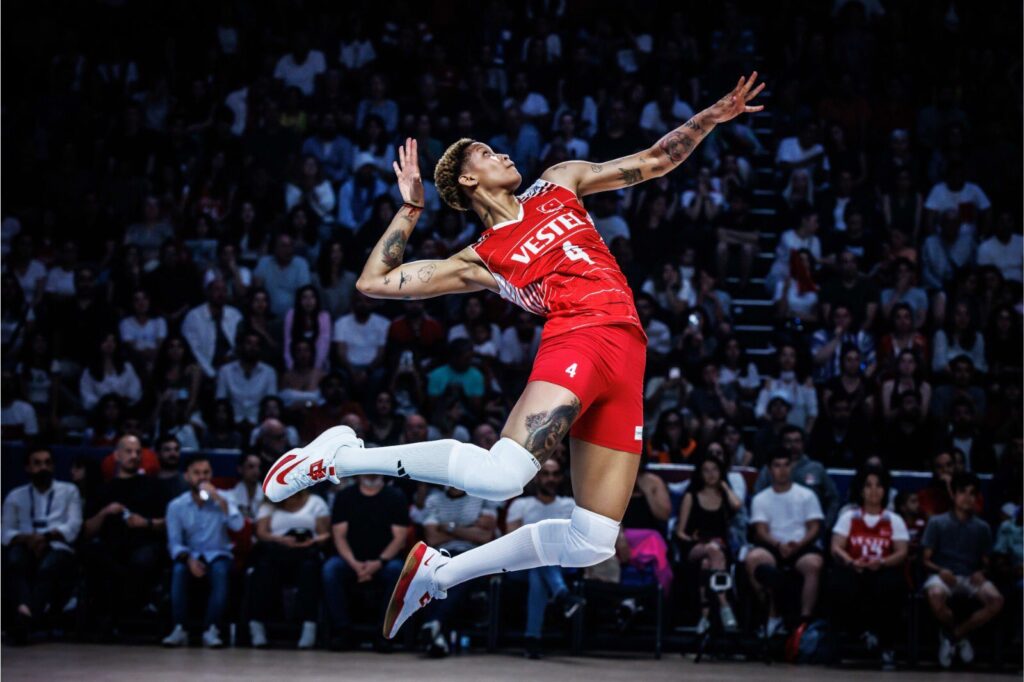Turkish Political Scene After the Elections
Turkish Political Scene After the Elections
26 September 2023 – Burak Bilgehan Özpek
The parliamentary and presidential elections held in May 2023 ended with the victory of Recep Tayyip Erdoğan and the People’s Alliance, contrary to the predictions of many leading public opinion research companies. Before the elections, Erdoğan’s potential victory was portrayed as a nightmare scenario by the opposition. Indeed, over the past 5 years, there have been signs of weakness in Erdoğan’s leadership, especially in areas such as the economy and bureaucratic capacity. Therefore, Erdoğan’s re-election has been interpreted as the public endorsing and continuing these irrational policies.
However, contrary to expectations, Erdoğan gave signals of significant change after the election. So much so that, according to Metropoll’s June research, those who answered the question of “Which political leader represents change the most?” as “Erdoğan” were in the first place. The actors of the system established in the past 8 years, starting from the elections of June 7, 2015, have been greatly revised. Because, during this period Erdoğan gained his legitimacy from the war he waged against national security threats as well as from public support. As a result of this security atmosphere, we encountered phenomena such as a harsh anti-Western sentiment, a strategic partnership with Russia, a non-orthodox economic policy, and the politicization of the internal security bureaucracy.
Erdoğan’s new cabinet and his new appointments aim to create expectations that this situation will change. The transfer of the administration of the economy to Mehmet Şimşek; the appointment of Hakan Fidan, who is well known and highly regarded by the Western world, to the Ministry of Foreign Affairs instead of Mevlüt Çavuşoğlu, who played an important role in establishing close relations with Russia; and the appointment of Ali Yerlikaya, a disciplined and ambitious bureaucrat, to the Ministry of Interior instead of Süleyman Soylu, whose populist and ambitious profile attracted attention and whose name was associated with many criminal incidents. Additionally, İbrahim Kalın, an intellectual who is able to establish a dialog with many circles and who is known for his ability to establish healthy relations with US officials, was appointed as Secretary of MİT (Turkish National Intelligence Organization).
At this point, it is necessary to ask the following question: Why did Erdogan make such a radical change? Of course, Erdoğan did not experience a sudden epiphany overnight. The revisions aim to breathe new life into a dysfunctional economic system, a blocked foreign policy agenda, and a discredited internal security bureaucracy. This is not a move for democratic transformation, but it seems to be a step towards reestablishing bureaucratic discipline.
In the previous period, corporate bureaucracy was replaced by networks close to the presidential palace. This situation naturally made the functioning of the state unpredictable and open to the intervention of lobbies. However, the weakness of bureaucratic capacity was seen by the whole society, especially during crisis periods such as pandemics, forest fires, and earthquakes. Therefore, it can be said that the priority of the new cabinet is to eliminate this systemlessness.
On the other hand, the change in the economic administration means that all the steps taken in the past 5 years were a mistake.
Bureaucratic systemlessness existed in the field of economy as in other fields. There were no longer many people who trusted the data announced by TUIK. Similarly, the uncontrolled use of public bank loans and through political connections, allegations of manipulation in the stock market, and the partisanship of the economic bureaucracy were frequently criticized, especially by opposition parties. Bringing names such as Mehmet Şimşek, Hafize Gaye Erkan, Cevdet Akçay, and Hatice Karahan to the economic administration aims to prevent this systemlessness and create a more institutional structure. Thus, the Turkish economy, which is thought by many experts to experience a balance of payments crisis, is planned to regain stability.
Post-election change was not limited to just names; policies also changed. Erdogan approved Sweden’s NATO membership, which Turkey had vetoed for a while. Afterward, he received Ukrainian President Vladimir Zelensky and allowed Azov brigade fighters to pass to Ukraine. Immediately afterward, he visited the Gulf countries and signed many investment agreements. These steps brought the F-16 problem with the USA into the solution process, and Erdogan announced for the first time in years that they were committed to the country’s goal of becoming a member of the European Union.
The main reason for these moves is the economic crisis. Defining a new geopolitical axis seems essential for the country to get out of the economic crisis it is in. Because Erdogan reaped the fruits of his close relationship with Russia by postponing the natural gas payments, which played an important role in his victory in the elections and gained maximum benefit from this close relationship. Pursuing a policy more compatible with the West seems to be the most profitable option at the moment to ensure foreign capital and investment inflow to the country. Moreover, the unsuccessful attempt to invade Ukraine, the easy march of the Wagner army consisting of mercenaries to the capital Moscow, and most importantly, the fact that it became more dependent on Turkey against the embargo and sanctions it was subjected to, weakened the political power of the Putin administration. This situation helps Erdogan to act more cost-effectively and more easily while acting pragmatically.
To sum up, the post-election period did not create an atmosphere in which the previous management style continued to intensify, as portrayed by the opposition. On the contrary, Erdoğan’s government shows that it wants to regain the balance it has disrupted internally, externally, and in the economy in the past five years. However, this is not easy. All of the steps taken in the new period will have credibility problems due to Erdogan’s presidential system. Unfortunately, a system in which the parliament is ineffective, bureaucratic capacity is weakened and networks close to Erdogan can intervene in the decisions taken does not inspire trust, and the expectation of a sudden U-turn at any moment remains.
Many opinion leaders think that Erdoğan has shown dissatisfied patience with the path he entered after the elections and that this path will be abandoned once it begins to erode his political popularity. The upcoming local elections pose a significant risk in this respect. Because the steps taken in the new period indicate that the anti-Western, conspiratorial, and security-oriented language that has been used during election periods cannot be used as freely as before and that a populist election economy will not be implemented. However, when he is stuck between winning elections and rational policies, we can more or less predict which one Erdoğan will choose.
On the other hand, Erdoğan’s biggest advantage is that the institutional opposition has almost dispersed after the elections. In this way, he can take strict measures in the economy and make radical turns in foreign policy. As long as this disorganization continues, he has a chance to win the municipal elections in March 2024 without deviating from rational policies. Therefore, one of Erdogan’s biggest preoccupations in the coming period will be to leave the opposition unable to react. This situation requires examining the situation of the opposition. To put it more succinctly, the continuation of Erdoğan’s rational policies after the elections is based on the condition that he does not pay any political price. This requires an opposition composition that is as weak and discredited as possible before the local elections.
The Situation of Opposition
As of September, although 5 months have passed since the elections, there are no signs of life in the opposition. In this respect, Erdoğan’s cabinet is quite lucky because, despite the increases in taxes and fuel prices that push the limits of tolerance, the reactions from the opposition are quite weak. None of the oppositional political parties that supported the project faced the failure known as the “Altılı Masa”. Unlike past presidential elections, opposition parties did not choose to simply assign a presidential candidate and give them power. Instead, an opposition architecture was established that required the cooperation of all opposition parties after the election, such as common policies, cabinet, and constitutional draft.
The “Altılı Masa” specifically refrained from giving power to a single candidate and approved Kemal Kılıçdaroğlu’s candidacy, insistently staying away from popular, charismatic candidates such as İmamoğlu and Yavaş, who could win the elections. However, Kılıçdaroğlu’s candidacy process was quite problematic. Parties with 1 percent of the total votes at the table entered the parliament by receiving 38 quotas from the CHP lists in return for their support for Kılıçdaroğlu. In other words, the reason for the support these parties gave to Kılıçdaroğlu was to increase the number of deputies in the parliament rather than to win the election, and for this, they saw Kılıçdaroğlu’s desire for candidacy as an opportunity.
On the other hand, the IYI Party’s departure from the table and sitting back 3 days later as a result of a massive lynching campaign could not be explained. Knowing that she would not win the election with Kılıçdaroğlu and that her party’s vote would decrease if she supported this candidacy, Akşener approved his candidacy on March 6, which she objected to on March 3. However, no explanation was given as to why he gave this approval.
A similar situation applies to HDP. The party base is questioning why they did not compete with their own candidate in the first round. Moreover, with the emergence of Kılıçdaroğlu’s secret agreement with the far-right Zafer Party, which received 2 percent of the votes, before the second round, the trust in the party elites among the HDP base was shaken. After the elections, Selahattin Demirtaş said that Kılıçdaroğlu choice was not his and he withdrew from politics. It would not be wrong to say that HDP could not explain to its base why it supported Kılıçdaroğlu’s candidacy. Similar to the İYİ Party, HDP has been trying to determine a road map since election day.
Immediately after the defeat, the first objection in the opposition came from the CHP and a change movement began around Ekrem İmamoğlu. However, İmamoğlu did not use his ability to speak to the society that symbolized him. He did not make any preparations for the election period, and instead of besieging the CHP headquarters with popular support, he negotiated with the oligarchs within the CHP to overthrow Kılıçdaroğlu at the party congress. This policy shook his reputation in society because İmamoğlu’s Zoom meeting with the people who were active in the candidacy process was leaked to the press. Many people found İmamoğlu’s call for change insincere. İmamoğlu is a leader who can revive the opposition and organize the society. However, we see that he is more focused on keeping the Istanbul municipality in his hands.
İmamoğlu supports Özgür Özel’s candidacy at the upcoming congress and plans to run again in the Istanbul Municipal elections. Thus, he thinks he can be a candidate in the next presidential elections. However, although the situation that will emerge if this strategy is successful makes İmamoğlu happy, it does not make the process he will follow to achieve these goals any easier. It is very difficult to achieve all these goals at the same time, and if İmamoğlu loses both the Congress and the Istanbul elections, his political life will largely come to an end.
On the other hand, İYİ Party is stuck between the grassroots demand for independent behavior and the pressure of the party elite to form an alliance with the CHP, which it defends for its own interests. Akşener spoke vaguely until September and did not close the doors to the alliance. However, following Mansur Yavaş and Kemal Kılıçdaroğlu’s Ankara candidacy statements, which they made without meeting her, she announced that her party would nominate candidates in all constituencies.
However, this attitude of the IYI Party does not worry the CHP. They think that the alliance will be established somehow and they are sure that Akşener will return to the alliance, as on March 6. This will not be easy because İYİ Party’s electorate base cannot tolerate another step back from Akşener. Moreover, past experiences tell Akşener that she should stay as far away from CHP as possible and that only in this way she can carry out a symmetrical negotiation process. From this perspective, it is possible to say that the bridges have not been burned yet. Akşener still did not directly target Kılıçdaroğlu and did not put forward the change of CHP management as a condition for the alliance. In other words, she left the door open by not binding herself with such a promise. However, for Akşener, who said she would enter the elections with independent candidates, the cost of a possible strategy change is increasing day by day.
The view that success will be achieved if an alliance is established has two handicaps. The first is that the public has become seriously alienated from politics after the elections. After the elections, CHP voters could see that Kılıçdaroğlu was clinging to his seat, the secret protocols he made to become a candidate, and the regular payments he made to media institutions. In other words, there is no longer a respected name at the head of the CHP. This situation may alienate voters from the ballot box, and it may become difficult to mobilize them after an election defeat.
The IYI Party base, on the other hand, is quite uncomfortable with the relationship with CHP during the election and is not in favor of the party entering into an alliance again. So, the elites of both parties will have a hard time explaining the alliance. Probably, CHP is thinking of creating a state of vigilance by pumping up anti-Erdogan sentiment through the media under its control and consolidating opposition voters in this way. The İYİ Party, on the other hand, may try to hide the party’s tendency to form an alliance with Kılıçdaroğlu from the grassroots by switching to a heroic and romantic nationalist discourse. In other words, while giving a discourse with an increased dose of nationalism to the grassroots, it can continue to form an alliance at the elite level. However, considering the close-to-end elections, it seems difficult for both strategies to help the opposition win the elections again.
The second problem is the situation of HDP. The party literally buried its head in the sand and declared that negotiations would be conducted openly and on the basis of protocol, as a condition of alliance in the local elections. However, a similar attitude was displayed before the presidential elections but was not implemented. The fact that the party’s decision-making mechanism is not transparent and party decisions are open to the influence of non-political actors makes HDP a difficult actor to predict.
However, there is an HDP that is losing political power. It is losing its young voters, especially those living in big cities, to parties such as CHP and TİP. And as Erdogan pursues a moderate policy, conservative Kurds tend to abandon the HDP and vote for the AKP. It is very likely that HDP will return to the pre-2015 situation and anchor below the 10% threshold. In other words, making an alliance in local elections and following an unambitious profile as a party poses a vital threat to the HDP. The party base demands that candidates be nominated in every constituency and that politics be abandoned in the shadow of the CHP. However, the party needs municipalities to gain power. It seems like a rational option for them to negotiate with the AKP, conditional on entering the elections with their own list and not appointing trustees to the municipalities won by the HDP.
These developments after the elections indicate that the technocratic and pragmatic model put forward by Erdogan may continue for a while. It will take time to re-establish an institutional opposition that can turn the political costs that may arise from the implemented policy into an opportunity, and the social support of a union involving the existing actors is currently weak. Until this possibility arises again, Erdogan can reorganize the bureaucracy, solve problematic issues in foreign policy without public reaction, and take harsh economic measures.
 Turkish Political Scene After the Elections | By Burak Bilgehan Özpek, 26.09.2023
Turkish Political Scene After the Elections | By Burak Bilgehan Özpek, 26.09.2023
–
Will the Medium Term Program Make Turkey Greater? | By Enes Özkan, 26.09.2023
–
Highly Skilled Migrant: Melissa Vargas | By Osman Can Akdeniz, 26.09.2023
–
 EU Will Give Turkey Some Concessions But Under Some Conditions | By Barçın Yinanç, 26.09.2023
EU Will Give Turkey Some Concessions But Under Some Conditions | By Barçın Yinanç, 26.09.2023
–
 Where Inflation Brings Us: Saramago’s Mental Asylum | By Caner Gerek, 26.09.2023
Where Inflation Brings Us: Saramago’s Mental Asylum | By Caner Gerek, 26.09.2023
–


